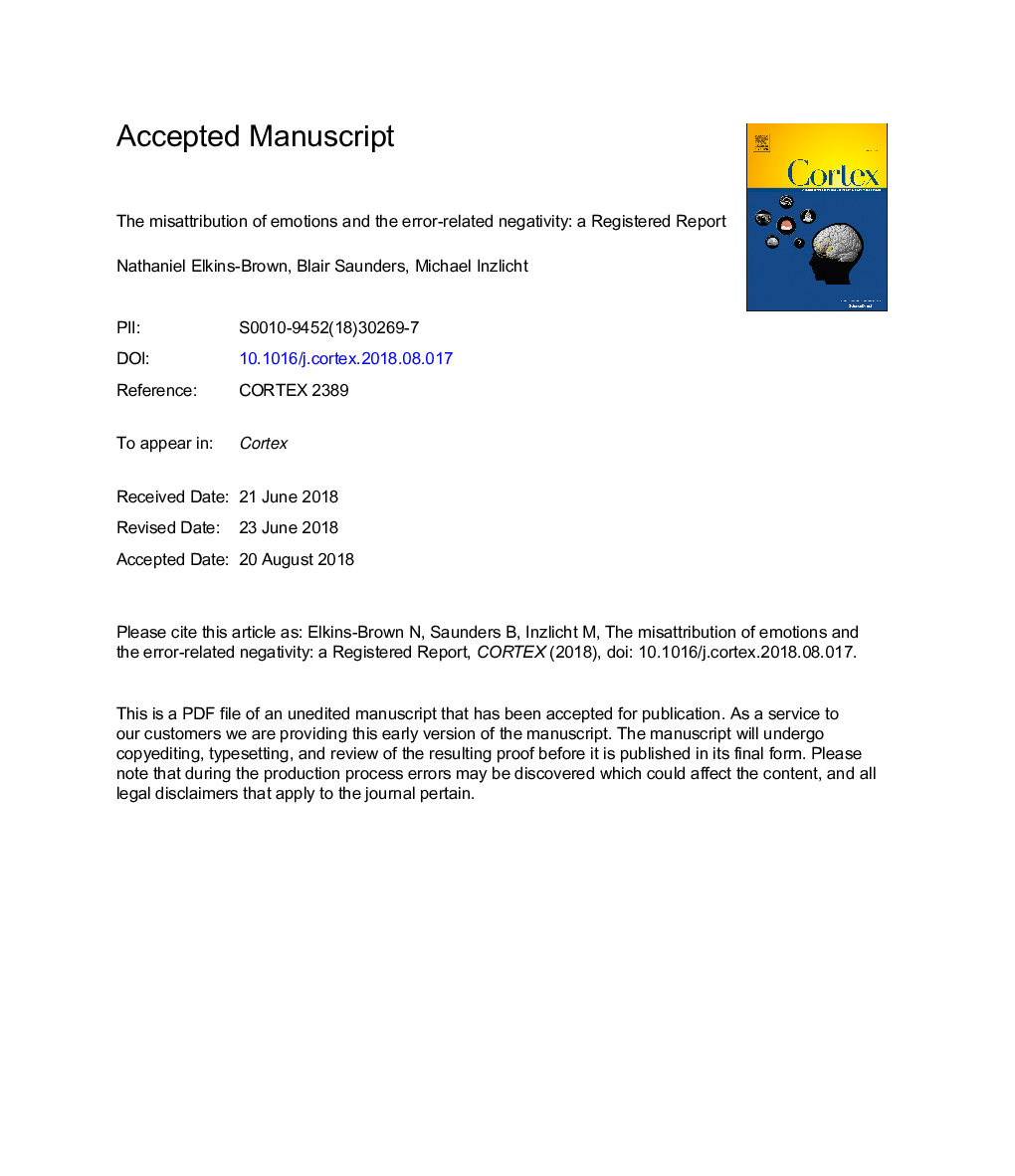| Article ID | Journal | Published Year | Pages | File Type |
|---|---|---|---|---|
| 11023435 | Cortex | 2018 | 63 Pages |
Abstract
A growing body of work in social and affective neuroscience suggests that emotion plays an instrumental role in error monitoring processes, rather than only a moderating one. High-powered replications of studies that support this idea, however, are lacking. Here, we attempted a preregistered replication of our own study that had provided evidence for the functional role of emotions in error monitoring: that a neural signal of error monitoring-the error-related negativity-is reduced when participants undergo a misattribution of arousal procedure (Inzlicht & Al-Khindi, 2012). Like a previous replication attempt (Rodilla et al, 2016), our misattribution procedure failed to reduce the amplitude of the ERN. However, it also failed its manipulation check to reduce state anxiety, limiting the conclusions we can draw. Nonetheless, these findings are consistent with the view that our original study may have been a false positive. We discuss these findings in the context of the replication crisis in psychology and of work on the emotional properties of the ERN.
Related Topics
Life Sciences
Neuroscience
Behavioral Neuroscience
Authors
Nathaniel Elkins-Brown, Blair Saunders, Michael Inzlicht,
